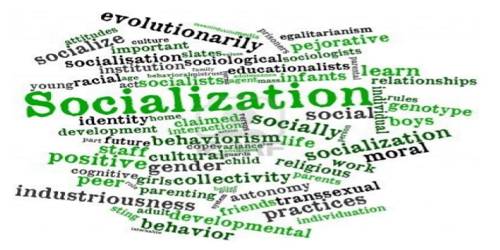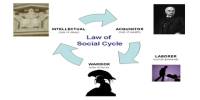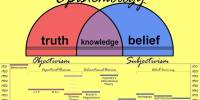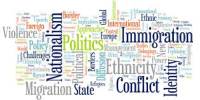Socialization is known as the process of inducting the individual into the social world. It is the means by which human infants begin to acquire the skills necessary to perform as functioning members of their society. The term socialization refers to the process of interaction through which the growing individual learns the habits, attitudes, values, and beliefs of the social group into which he has been born.
Planned socialization and Natural Socialization:
Planned socialization occurs when other people take actions designed to teach or train others—from infancy on. Natural socialization occurs when infants and youngsters explore, play and discover the social world around them.
Planned socialization occurs when other people take actions designed to teach or train others. This type of socialization can take on many forms and can occur at any point from infancy onward. Natural socialization occurs when infants and youngsters explore, play and discover the social world around them. Natural socialization is easily seen when looking at the young of almost any mammalian species (and some birds). Planned socialization is mostly a human phenomenon; all through history, people have been making plans for teaching or training others. Both natural and planned socialization can have good and bad qualities: it is useful to learn the best features of both natural and planned socialization in order to incorporate them into life in a meaningful way.
Nurturance is similar to negative and positive reinforcement because it involves both negative and positive feedback, and that feedback comes from a person who the subject greatly admires, so their reaction to a particular behavior has a bigger impact.
Information Source:
















